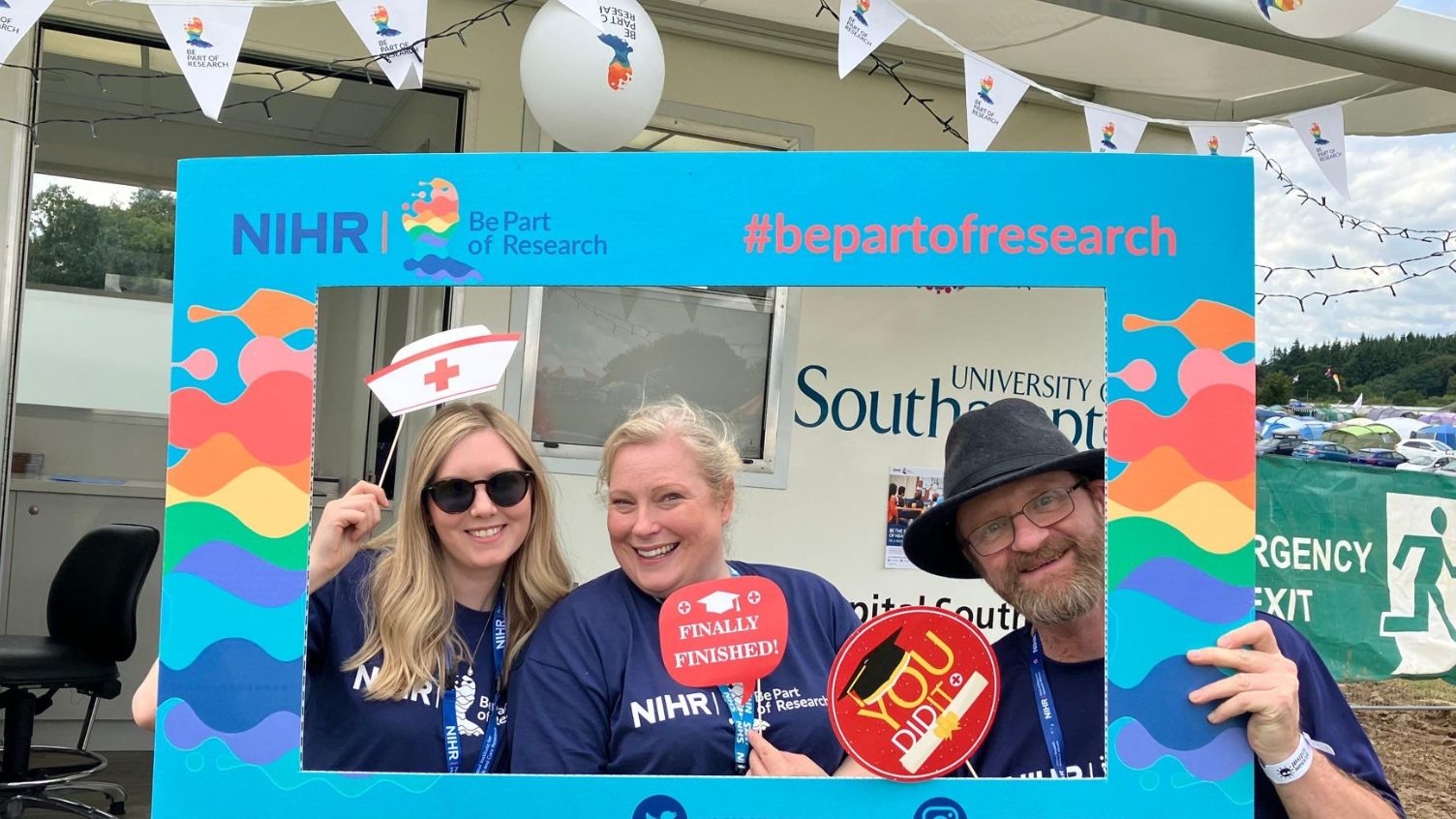Join Dementia Research boosts study recruitment in south London
- 17 May 2023
- 4 min read
A researcher spoke about boosting recruitment to studies with Join Dementia Research
Join Dementia Research boosts study recruitment in south London
Olga Borejko, a researcher and project manager at the Department of Old Age Psychiatry, King's College London, spoke about the benefits of using Join Dementia Research to boost recruitment to a Lewy body dementia study supported by NIHR CRN South London.
Join Dementia Research is a service that gives researchers access to large numbers of interested volunteers, helping them to identify potential participants for their studies. More than 59,000 volunteers have registered on Join Dementia Research, including more than 9,000 people with various dementia diagnoses. The number of registrations is steadily growing, with more than 8,000 new volunteers registering in the 2022/23 financial year, including 2,031 people with dementia.
Olga sets up and manages commercial and non-commercial studies for patients with Alzheimer's disease, dementia with Lewy bodies and Parkinson's disease dementia at the Department of Old Age Psychiatry. She said:
“We use Join Dementia Research for every new non-commercial and commercial study we set up at Old Age Psychiatry, King's College London. Generally, based on a brief study overview and basic inclusion and exclusion criteria, we are able to access and match a large number of volunteers on Join Dementia Research. They can express their interest in our study, or we can contact potentially eligible volunteers.”
ENLIST-UK study
One of the studies researchers at the Department of Old Age Psychiatry use the service for is ENLIST-UK, a multi-centre longitudinal observational study funded by Alzheimer's Research UK, looking at diagnostic and prognostic biomarkers associated with dementia with Lewy bodies (DLB). The CRN supports ENLIST-UK and other studies at the department, including through funding one of the research staff to support recruitment activities.
Professor Dag Aarsland, Chair of Old Age Psychiatry and Chief Investigator for the ENLIST-UK study, said:
"Join Dementia Research provides a great opportunity to reach out to the community and inform people about our research activities. This service is particularly important for dementia with Lewy bodies, a disease which is under-researched and hence associated with many unmet research needs. ENLIST-UK joins five major UK research centres in understanding the clinical and biomarker characteristics of the disease and offers patients a great opportunity to meet expert clinical research teams over several years."
Dementia with Lewy bodies is the second most frequent cause of age-related neurodegenerative dementia. However, we know little about it compared to the more familiar Alzheimer's disease. Olga said:
"DLB is associated with poor prognosis and more rapid cognitive decline, as well as high care burden and increased mortality. The cause for this rapid cognitive decline remains unclear. More research is needed to clarify clinical and biological markers for DLB and to develop a treatment.
"The ENLIST-UK study aims to address all these issues. We hope to improve diagnostic and prognostic biomarkers for patients with dementia with Lewy bodies. In particular, the study looks at how blood and cerebrospinal fluid biomarkers are associated with clinical and cognitive symptoms in DLB and whether we can use these biomarkers to predict cognitive decline in patients with DLB."
Boosting recruitment with Join Dementia Research
The ENLIST-UK study is carried out at five UK centres in partnership with local NHS Trusts, including South London and Maudsley NHS Foundation Trust. So far, 82 patients have been recruited to take part in the ENLIST-UK study across all centres. The study has used the Join Dementia Research service to contact potential volunteers. Olga said:
"Join Dementia Research has made a tremendous difference to the ENLIST-UK study. Firstly, the service has boosted our recruitment significantly, with 30 to 50% of our participants enrolled through Join Dementia Research. We are also able to contact and recruit patients from outside the geographical catchment area for our local NHS trusts, providing more opportunities to patients and promoting research and engagement.
"Our patients say they are extremely grateful as very few longitudinal studies are available for patients with DLB compared with Alzheimer's disease."
How to take the most out of Join Dementia Research
Olga has over a decade of experience working with patients with neurodegenerative diseases. Her research interests are in understanding how mental and cognitive processes change due to neurodegenerative diseases and how cerebrospinal fluid and blood-based biomarkers are associated with cognitive and clinical outcomes in patients with DLB and Parkinson's disease dementia.
Speaking from her years of experience using the service, Olga shared some tips on how to take the most out of Join Dementia Research:
“The most important is to have a brief and patient-friendly overview of the study with the study purpose, schedule and potential benefits clearly outlined.”
"There is also a fine balance between setting up the key inclusion and exclusion criteria. It's important that the study is broad enough to provide opportunities to reach out to a large number of patients but also specific enough to pick up the right candidates.
"I urge you not to worry too much about the medication section. You may find things have changed since the previous contact. The best method is always to contact the patient and clarify if they take any medications.
"Lastly, always read the updates made by other researchers, as they provide useful information on patient status. For example, a patient may be hospitalised, unable to be contacted again or currently participating in other research."
All ethically approved dementia studies from across the UK suitable to recruit from a register can use the Join Dementia Research service. Find out what the service offers for researchers on the Join Dementia Research website.


